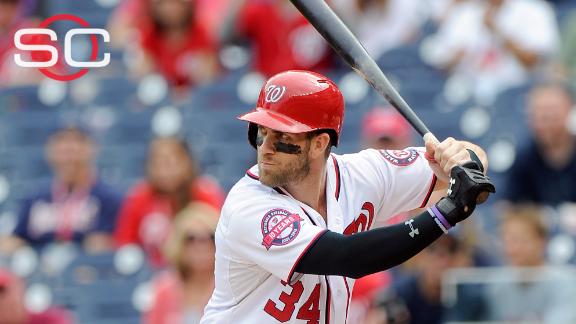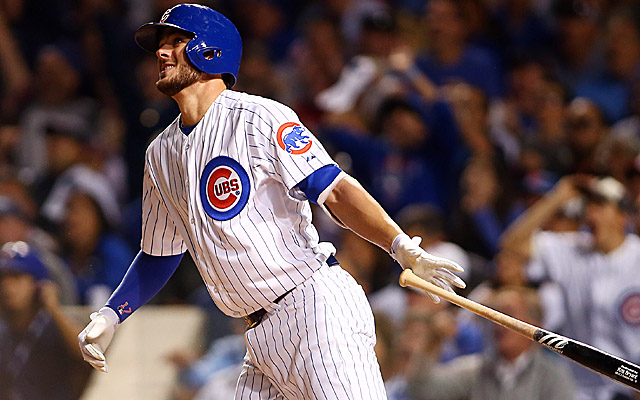Longoria's suffered two down years in a row when he should be in his prime (TBO)
|
For the first six years of his career, Evan Longoria was the best position player in baseball. Despite losing over a year's worth of games to injury, his combination of elite glovework at third base and a top-shelf bat made him a superstar when healthy.
Then 2014 happened. Injuries weren't the issue, as Longoria played all 162 games for the first time, but his production cratered. He'd been so good up to that point, though, and he was only 28, so it looked like nothing more than an off-year. Surely Tampa Bay's $100 million third baseman would bounce back.
He didn't. His numbers improved slightly, but his 2015 was essentially the same as his 2014. Once again he was healthy, appearing in all but two games, so injury-woes were not to blame. That made two down years in a row for Longoria, in what were supposed to be his prime years.
I don't have to tell you that unless there's a career-altering injury involved, great athletes typically don't get dramatically worse during their late 20s. Oftentimes, many get better. They're still young enough to be in their physical primes, but experienced enough to have acclimated to major league competition. These are supposed to be an athlete's greatest seasons.
For Evan Longoria, they have been his worst.
Longoria has had a weird career. When he debuted at 22 in 2008, he was mostly a finished product, winning Rookie of the Year unanimously and blasting 27 homers. He only improved from there, looking like a surefire MVP for years to come as he entered his mid-20s. All he had to do was take his game a little bit higher.
He never did. Injuries caused him to miss 117 games between 2011 and 2012, his age-25 and -26 seasons. He came back strong in 2013, playing 160 games and finishing sixth in the AL MVP vote, but his production had plateaued. Longoria was still a great player, just not quite the dominant force he seemed poised to become.
Over the last couple years, however, Longoria has slipped from a great player to a merely good one, declining in all facets of the game. The two-time Gold Glove winner hasn't won since 2010, with metrics now suggesting he's much closer to an average fielder than the vacuum cleaner he was previously. His baserunning has also fallen off considerably. While never a burner, he was an asset on the basepaths through the first three years of his career, stealing 31 bases in 36 attempts and providing a full win's worth of value over an average runner. In the five years since, he's managed just 14 steals and been four runs worse than average on the bases, providing positive value with his legs in just one year.
Defense and speed peak early, however, so it's not surprising that Longoria's lost some of both as he's advanced into his late 20s. What's concerning is how he's become a league average hitter after previously producing like David Ortiz.
How did Longoria fall so far, so fast? A major red flag is his plummeting walk rate, which has declined every year since 2011. Once a very patient hitter, he's now drawing free passes at a roughly league average rate. Longoria's chasing, and hitting, more pitches outside the zone than ever before, which explains both his eroding walk rates and hard-hit frequencies. He's swinging more in general, too, which wouldn't be a bad thing if he hadn't started hacking at so many non-strikes.
It could be that Longoria's new aggression is in response to seeing more first pitch strikes than ever before. Part of that's due to the larger strike zone, but it's also likely that pitchers have recognized Longoria's willingness to let the first offering go by. In 2015 the league hit just .225/.265/.344 after falling behind 0-1. Longoria isn't much better, batting .234/.277/.388 for his career after first pitch strikes. Since he's seeing more of those, it follows that his numbers have nosedived. And since he's on the defensive more often, he has to chase more often, thus explaining the loss of patience.
What's really troubling, though, is Longoria's loss of power. After averaging 33 home runs per 162 games with a .237 ISO through his first six seasons, he's averaged just 22 with a .158 ISO over the past two. His doubles were down too, from 41 per 162 games to 31, so it's not like he was just getting unlucky with his HR/FB rates (though those are down too).
The reason for Longoria's diminished power is simple (and one I alluded to earlier); he's not hitting the ball as hard as he used to. The only time he had a worse hard-hit % than he did the last two years was in his injury-hampered 2011. Meanwhile, his soft contact rate nearly doubled from 2013 to 2015, and his medium contact rate is up as well (the only time it was higher; 2009). This data, along with his rising pop-up rates, suggest he's not squaring up the ball as well as he used to. That's a side effect of hacking, to be sure, but he also might be losing strength and bat speed as he ages.
Longoria's career seems to be following the same path as David Wright's. Both peaked early and were at their best in their mid-20s, looking like future Hall of Famers. Then their performance started dropping off in their late 20s, because of injuries with Wright and the reasons outlined above with Longoria. Wright has yet to recapture the consistent greatness he exhibited through his first five seasons, and it seems unlikely that Longoria--who just turned 30 last month--will either.











